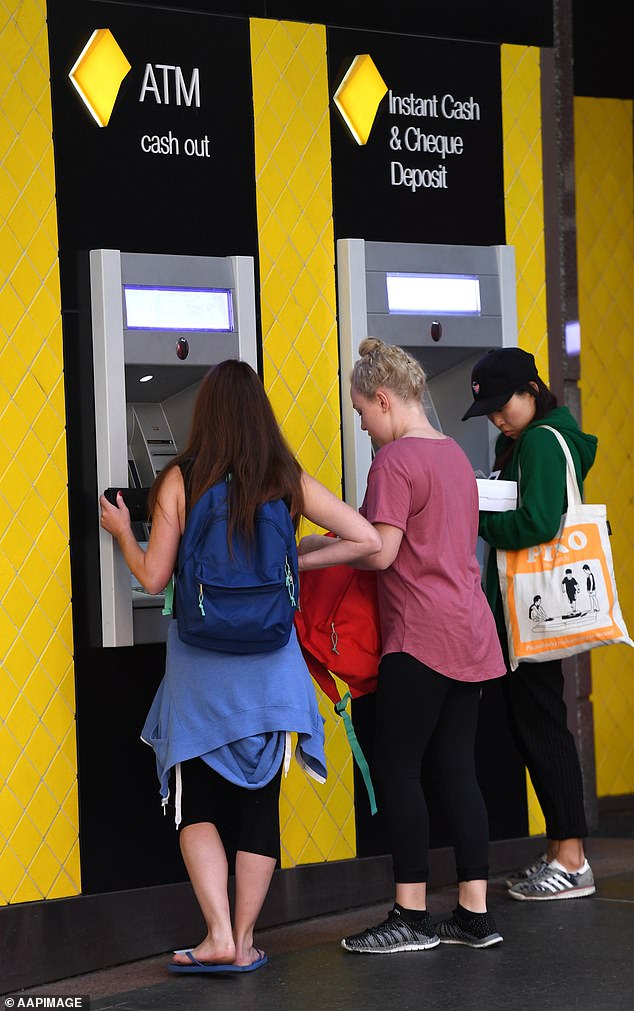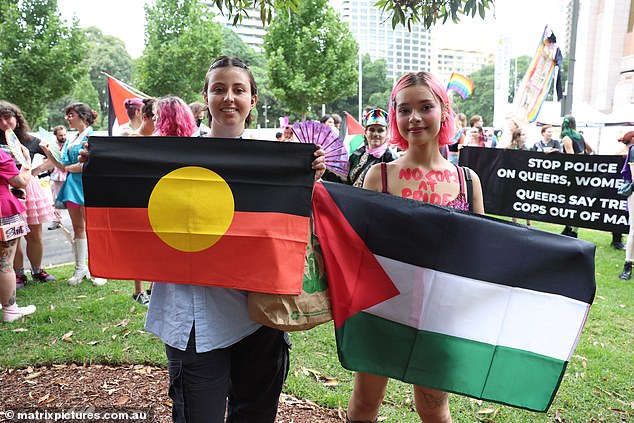The ‘diversity, equity and inclusion’ experiment failed in the U.S. It’s time for our big companies to end this madness – and focus on the group that is REALLY discriminated against, writes STEPHEN JOHNSON
American exports such as McDonald’s, Hollywood films and sitcoms have become the symbol of a cultural invasion of Australia.
While Big Macs, Brad Pitt and canned laughter are often harmless in moderation, not all mass-produced fashion imported from the US is worth keeping.
For example, “diversity, equity and inclusion” policies in the workplace have proven to be divisive, both here and in America, where they originated.
This woke folly is already being quietly abandoned in the United States, with major corporations tacitly admitting that it was a failed experiment. But some Australian workplaces have missed the memo, with staff continuing to be subjected to mind-numbing cultural awareness sessions on ‘unconscious biases’ and ‘microaggressions’.
Big companies need to stop making those hollow, Orwellian statements about ‘inclusion’ and focus on customer service rather than exploiting staff with minority characteristics for marketing purposes.
Instead of focusing on merit, the DEI agenda is really about having an unhealthy fetish for certain fashionable minority groups, without really addressing real cases of bigotry like ageism.
The idea that members of a minority group – whether based on race or sexuality – need a so-called “ally” is also downright patronizing.
It is simply demeaning to suggest that individuals are somehow too weak to speak for themselves because of their demographic status and therefore should be treated like children to be singled out.
Not all the mass production brought over from the United States and which pervades many aspects of Australian life is worth preserving, including ‘diversity, equality and inclusivity’ (pictured are revelers during the Gay and Lesbian Mardi Grass 2023 in Sydney)
DEI also divides members of minority groups between those who want to use their minority status to get promoted at work and be visible, and those who are more concerned about their privacy and believe such characteristics are irrelevant.
The idea of emphasizing immutable characteristics such as race, ethnicity and sexuality is anathema to the concept of merit where the best man or woman is hired or promoted.
It would be considered politically far-right for white, heterosexual employees in an Australian workplace to establish a specialized network, and that would certainly alienate colleagues who do not fit those descriptions. Hardly inclusive.
But apparently in the interest of ‘equality’, the employees form groups based on race and sexuality.
Highlighting the fact that someone is gay or from an ethnic minority also gives other colleagues the impression that they are only being promoted for public relations reasons or to help a CEO add to his resume.
And it also discriminates against minority workers who simply don’t want to talk about their personal characteristics and just get on with their work.
It is also illegal to ask someone about their race or sexuality during a job interview, but that of Australia The largest companies actively promote DEI policies because they are trendy.
The Commonwealth Bank, Australia’s largest home lender, said it was “committed to diversity, equality and inclusion”.

Commonwealth Bank, Australia’s largest home lender, declared its ‘commitment to diversity, equality and inclusion’ (pictured is a bank branch in Brisbane)
The public is cynical about the banks, so in an attempt to have a feel-good agenda, CBA has an ‘LGBTIQ+ and ally network’ known as Unity, which is apparently designed to ‘advocate a culture of inclusion and respect, regardless of gender, sexuality, gender and expression’.
Airlines Virgin has Pride Flights for marketing purposes, while rival Qantas has an Illuminate employee network “to facilitate communication between our LGBTQI+ employees and their allies.”
Mining giant BHP has a Jasper program to ‘create a safe, inclusive and supportive working environment for all by providing advice on ways to reduce prejudice and ensure LGBT+ people are respected and valued, regardless of their sexual or gender identity’.
Of course, who someone gets intimate with in the bedroom is a private matter that doesn’t need to be mentioned in the workplace.
CommBank, which supported the failed Voice referendum in 2023, also has a Yana Budjari network that “supports First Nations people.”
“This network will enable our people to meaningfully connect with Indigenous peoples, programs and communities,” it says.
“It is also a safe space for our First Nations people to come together, support each other, discuss community issues and develop their understanding of people power within the company.”
CBA also has a ‘Mosaic’ group which is described as ‘our employee-led network for cultural inclusion’.

For example, workplace ‘diversity, equality and inclusion policies’ have proven to be divisive, both here and in America, where they originated (pictured are Aboriginal and Palestinian flags at Sydney’s Gay and Lesbian Mardi Gras )
Colleagues with something in common can connect outside of work hours without an officially sanctioned workplace policy based solely on ethnicity.
But Commonwealth Bank’s DEI groups have demonstrated the failure of identity politics, with only some minority groups being more valuable than others.
The ‘connection through inclusivity’ of Australia’s largest bank says little older workers despite having an Advantage network to serve staff ‘regardless of what age or stage of life our people are going through’.
But it has no photos on its website to illustrate older staff and make them feel ‘included’ and visible, even though an Australian Human Rights Commission survey found that 58 percent of older workers looking for work , faced age discrimination.
More than a quarter of respondents over 50 in this survey reported experiencing age discrimination, and gay and ethnic minority employees are also believed to be affected.
The United States, the birthplace of the DEI movement, has doubts about this.
Motorcycle maker Harley-Davidson announced in August last year that it was no longer targeting minority-owned suppliers and would stop social training for staff.
Retailer Walmart, beer maker Molson Coors, auto giant Ford, tractor maker John Deere, home improvement chain Lowe’s and whiskey distiller Brown-Forman are also scaling back their involvement in diversity programs.
It’s time for DEI, nothing more than a cynical PR exercise, to be dumped for good.
Employers can ensure that their workforce is not discriminated against based on birth characteristics without having to seek validation through DEI policies.
Australia is dealing with more serious labor market issues, such as a productivity crisis, so big companies should focus on that and get more value for shareholders rather than succumbing to the latest activist trend.
Diversity, equality and inclusivity must be scrapped for good so that a true meritocracy can flourish, where characteristics such as race, ethnicity and sexuality are irrelevant and the best man or woman advances in their chosen career.
Let’s get toxic politics out of the workplace.
